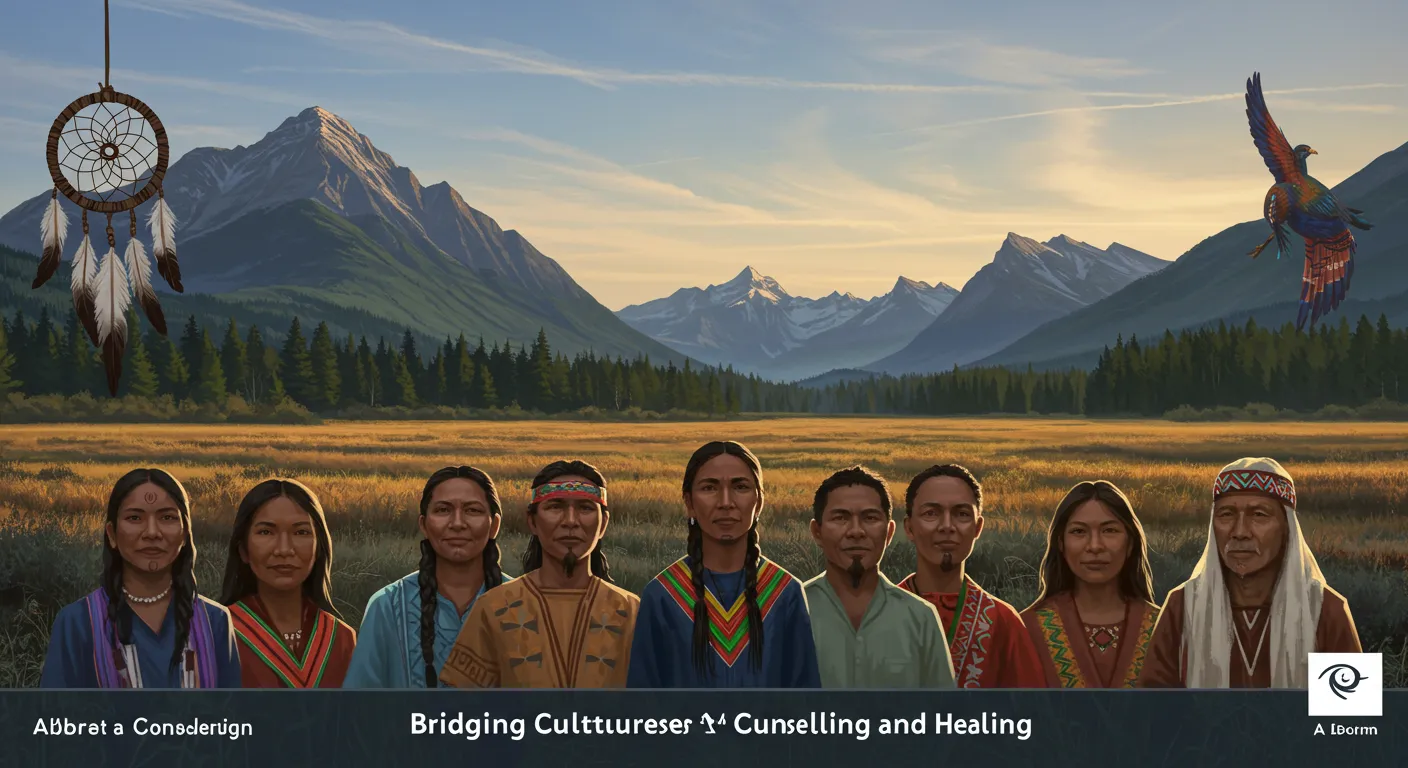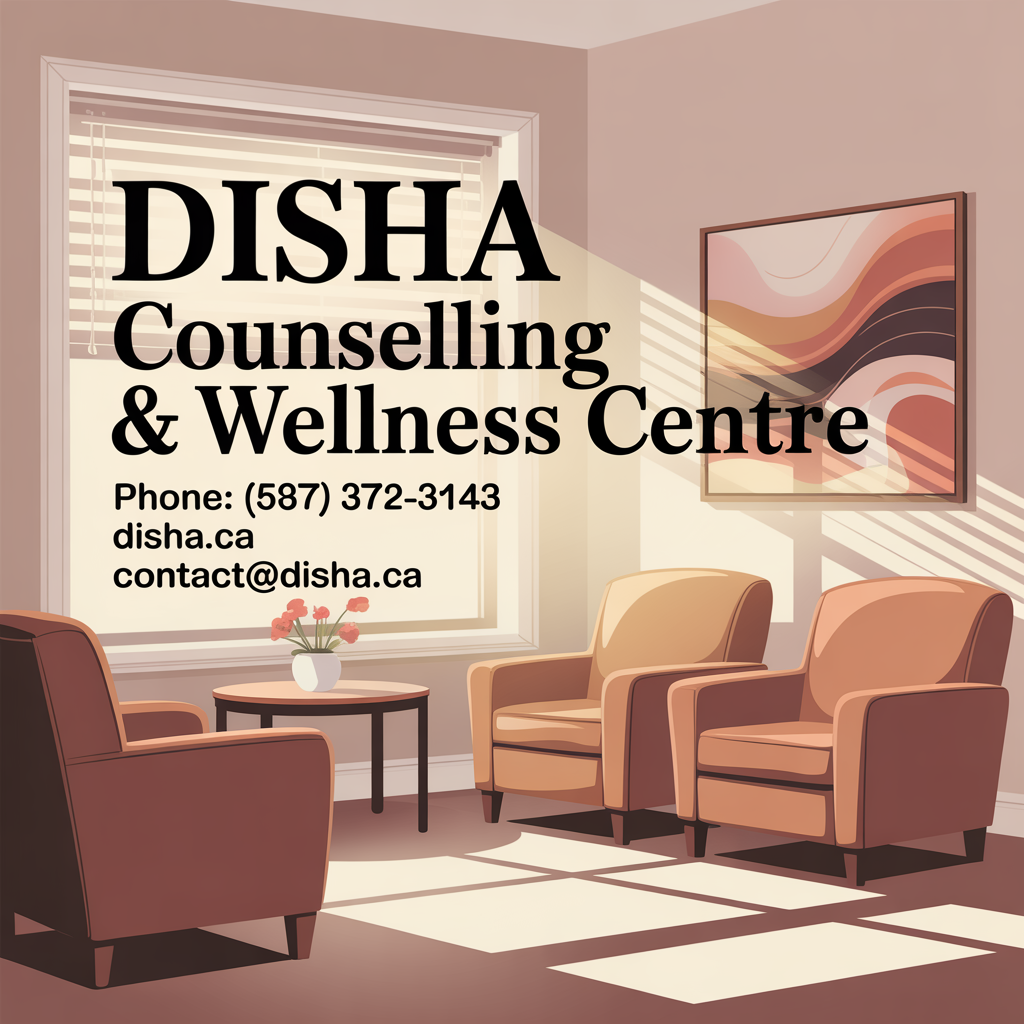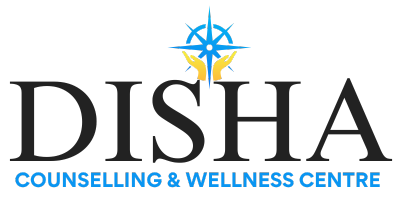Bridging Cultures and Healing: My Perspective on Native and Multicultural Counselling in AlbertaA few years ago, I sat in a waiting room—not for myself, but a relative quietly reaching out for help. It was there I realized that, for many in Alberta's diverse communities, finding support that truly 'gets it' can feel like searching for …
Bridging Cultures and Healing: My Perspective on Native and Multicultural Counselling in Alberta

A few years ago, I sat in a waiting room—not for myself, but a relative quietly reaching out for help. It was there I realized that, for many in Alberta’s diverse communities, finding support that truly ‘gets it’ can feel like searching for water in the desert. Thanks to initiatives like Disha Counselling and Native Counselling Services of Alberta, that search is a lot less lonely these days. Let’s take a real, honest look at how these organizations aren’t just providing therapy—they’re reshaping community care in ways both expected and refreshingly unexpected.
What Sets Disha Counselling Wellness Centre Apart?
After years of observing the counselling landscape in Alberta, I’ve witnessed countless providers claim to offer culturally sensitive care. Yet Disha Counselling Wellness Centre Edmonton stands distinctly apart from the crowd. What makes this difference so pronounced? It starts with their unique approach that genuinely combines evidence-based therapy with deep cultural expertise.
The centre is led by Mukesh Mishra, a Registered Clinical Social Worker whose years of multicultural experience bring authenticity to every session. Unlike many practitioners who add cultural sensitivity as an afterthought, Mishra has built his entire practice around understanding how cultural backgrounds shape our mental health journeys. Research shows that therapy is most effective when it honors a client’s lived experiences, and this principle guides every interaction at Disha.
I particularly appreciate their free consultation counselling Edmonton approach. This isn’t just a marketing tactic—it allows potential clients to genuinely ‘test the waters’ before committing to therapy. For many Indigenous and multicultural clients, taking that first step feels overwhelming. Knowing you can explore the therapeutic relationship without financial pressure removes a significant barrier.
The flexibility of their service delivery impressed me greatly. Disha offers both online and in-person counselling Alberta options, recognizing that modern life doesn’t always accommodate traditional appointment structures. Whether you’re juggling shift work, caring for family members, or living in rural communities, their adaptable scheduling makes mental health support accessible.
I witnessed this impact firsthand when I recommended a close friend to Disha. She had struggled with previous counsellors who, despite good intentions, couldn’t connect with her cultural perspective on family dynamics and community relationships. At Disha, she found something different—genuine understanding and comfort through culturally tailored support. Her progress over the following months spoke volumes about the power of truly inclusive therapy.
What strikes me most about their evidence-based therapy solutions Edmonton is how they avoid the one-size-fits-all mentality. The centre extends comprehensive services to families, individuals, children, and couples. No one gets left out or pushed into unsuitable treatment approaches. Each therapeutic journey respects both clinical best practices and cultural wisdom.
Serving Edmonton and throughout Alberta, Disha has positioned itself as more than just another counselling centre. They’ve created a space where Indigenous clients can access NIGH-approved counselling that honors traditional healing alongside modern therapeutic techniques. This integration isn’t superficial—it’s woven into the fabric of how they understand mental wellness.
The combination of Mukesh Mishra’s clinical expertise with genuine multicultural sensitivity has created something rare in Edmonton’s mental health landscape. When cultural understanding meets evidence-based practice, healing becomes possible in ways that respect both individual needs and community values. This approach transforms therapy from a clinical transaction into a culturally meaningful journey toward wellness.
Native Counselling Services of Alberta: Decades of Advocacy and Innovation
When I think about the landscape of Indigenous counselling options Edmonton offers, one organization consistently stands out for its unwavering commitment and deep-rooted community connections. The Native Counselling Services of Alberta has been championing Indigenous rights and wellness for more than 45 years—a timeline that speaks volumes about their dedication and impact.
What strikes me most about NCSA is how their programs are designed by and for Indigenous communities. This isn’t just a tagline; it’s a fundamental approach that shapes everything they do. Their court work programs, addiction support services, and family initiatives emerge directly from community needs and wisdom. Research shows that NCSA is renowned for Indigenous-led, justice- and wellness-focused support, including legal and corrections programs that address systemic barriers many Indigenous people face.
NIGH-Approved Excellence in Mental Health Support Indigenous Communities
The organization’s NIGH approval isn’t just a credential—it represents a commitment to evolving practices based on feedback from elders and community members. This dynamic approach ensures their Native Counselling Services Alberta Edmonton operations remain culturally relevant and effective. They don’t operate in isolation; instead, they continuously adapt their methods based on traditional teachings and contemporary therapeutic approaches.
I recall a conversation with my mentor who once volunteered with NCSA’s healing circles. He often mentioned how he learned even more than he taught during those sessions. The reciprocal nature of healing within Indigenous frameworks became clear to him through that experience—something that traditional Western therapy models often miss.
Comprehensive Regional Coverage Across Alberta
While NCSA maintains a strong presence in Edmonton, their services extend throughout Alberta, reaching both urban centers and remote communities. This expansive network ensures that Indigenous individuals and families across the province can access culturally appropriate support when they need it most.
Their programs span multiple areas: legal support, family wellness initiatives, addiction recovery services, corrections liaison work, and youth programs. Each service area reflects decades of community input and professional development. The organization operates multiple regional offices throughout Alberta, making their Native Counselling Services contact information accessible to diverse communities.
At Disha Counselling Centre, we recognize the importance of culturally sensitive approaches to mental health. While we offer NIGH-approved counselling services both online and in person throughout Alberta, we deeply respect the specialized work that organizations like NCSA provide. Our commitment to serving Indigenous communities includes understanding the broader ecosystem of support available.
The longevity of NCSA—over four decades of service—demonstrates something profound about community-centered care. When services truly meet people where they are, culturally and spiritually, they endure and evolve. This Indigenous-led organization continues setting standards for how mental health support Indigenous communities should be delivered: with respect, cultural understanding, and genuine partnership.
More Than Appointments: Online and In-Person Counselling, My Surprising Takeaways
When I first started exploring online and in-person counselling Alberta options, I honestly didn’t expect the revelations that followed. Working with Indigenous communities across this province has taught me that healing happens in unexpected ways—and sometimes, the most profound breakthroughs come when people feel truly comfortable in their own space.
What surprised me most? Online sessions often reveal breakthroughs that might never surface in a traditional office setting. I’ve watched clients open up at home in ways they simply couldn’t manage face-to-face. There’s something about being surrounded by familiar objects, maybe a favorite blanket or family photos, that creates safety. The formal office environment can feel intimidating, especially for Indigenous clients who’ve faced systemic barriers in healthcare settings.
Breaking Down Geographic Barriers
The hybrid approach has become a game-changer for those facing transport challenges, mobility issues, or rural isolation. My cousin’s story perfectly illustrates this reality. She lives two hours from Edmonton, and for years, she simply couldn’t access therapy. Between work schedules, childcare, and the cost of travel, regular in-person sessions weren’t feasible. Online access literally allowed her to start therapy at all.
Disha Counselling Wellness Centre Edmonton recognizes this challenge. Their NIGH-approved counselling services extend beyond city limits, offering both online and in-person options across Alberta. This flexibility means Indigenous families in remote communities can finally access culturally appropriate mental health support without leaving their home territories.
Technology’s Role in Healing
Let’s be honest—technology sometimes stumbles. Internet connections fail, audio cuts out, and screen sharing doesn’t always cooperate. But here’s what I’ve learned: the gains far outweigh these temporary hassles. When someone in Fort McMurray can connect with a specialized Indigenous counselor in Edmonton, a few technical glitches become minor inconveniences rather than insurmountable barriers.
Research shows that online therapy options dramatically expand reach for Indigenous and rural Albertans needing counselling support. This isn’t just convenient—it’s transformative for communities historically underserved by mental health resources.
Privacy and Trust in Digital Spaces
Confidentiality remains a top concern, and rightfully so. Both established organizations and newer practices like Disha prioritize client comfort and privacy in digital settings. Indigenous counselling options Edmonton now include secure platforms designed specifically for therapeutic relationships, with encryption standards that protect sensitive conversations.
What strikes me most is how this dual approach—online and in-person—respects individual preferences and circumstances. Some clients prefer the intimacy of face-to-face sessions. Others find their voice more easily through a computer screen. Many benefit from switching between both formats depending on their current needs.
The province-wide availability of online therapy, combined with in-person sessions in Edmonton and other Alberta locations, creates a comprehensive support network. For Indigenous communities seeking culturally sensitive mental health care, this flexibility represents more than convenience—it represents genuine accessibility and respect for diverse healing journeys.

Beyond Stereotypes: What Culturally Sensitive Counselling Looks Like
When I first started working in mental health support Indigenous communities, I quickly realized that standard therapy approaches often miss the mark completely. The cookie-cutter Western model? It doesn’t work for everyone, especially Indigenous and newcomer clients who carry rich cultural traditions and unique healing perspectives.
At Disha Counselling Wellness Centre Edmonton, we’ve learned that real healing happens when we integrate traditional wisdom into our practice. This isn’t just about being politically correct—research shows that culturally-adapted counselling, including traditional elements, leads to better engagement and more positive results for clients.
What This Actually Looks Like in Practice
Instead of forcing clients into rigid 50-minute office sessions, we create space for talking circles where stories flow naturally. Sometimes we incorporate storytelling as a therapeutic tool, understanding that many Indigenous cultures have used narrative healing for generations. I’ve seen clients light up when they realize they can share their experiences through traditional frameworks rather than clinical terminology.
The work also means acknowledging generational trauma in sessions—not as a sidebar, but as a central piece of the healing puzzle. When families have experienced residential schools, forced relocations, or cultural suppression, that history lives in the present moment.
Breaking Traditional Boundaries
Here’s something that might surprise you: imagine therapy held outdoors, with a drum circle for grounding. That’s not unconventional—that’s wisdom meeting wellness. Some of my most powerful sessions have happened away from sterile office spaces, in environments where clients feel connected to their roots.
Mukesh Mishra, one of our experienced therapists, incorporates both South Asian and Indigenous frameworks in his tailored treatment plans. He understands that healing doesn’t follow a one-size-fits-all model. Whether someone needs traditional Western cognitive approaches or Indigenous healing practices, we adapt our methods to match their cultural background.
The Relief of Being Understood
I hear this repeatedly from clients: “Finally, a place I don’t have to explain myself.” That moment of recognition—when someone realizes they won’t be judged for their cultural practices or forced to translate their experiences into Western psychological terms—creates the foundation for real therapeutic work.
Our Indigenous counselling options Edmonton include both online and in-person sessions because we know accessibility matters. Through our NIGH-approved counselling services, we provide native counselling across Alberta, meeting clients where they are—literally and figuratively.
The difference isn’t just philosophical. When we create culturally safe spaces that honor traditional practices alongside evidence-based therapy, clients engage more deeply. They show up consistently. They trust the process because the process respects who they are.
This approach transforms the entire therapeutic relationship. Standard Western models get adapted, not abandoned, to suit Indigenous, South Asian, and other ethnic communities we serve at disha.ca.
A Closer Look at Specialized Programs: Support Beyond the Therapy Room
When I think about Indigenous counselling services in Alberta, I’m struck by how traditional therapy is just one piece of a much larger puzzle. The reality is that many Indigenous clients face challenges that extend far beyond what we can address in a standard counselling session. This is where specialized programs truly shine, creating comprehensive support systems that recognize the interconnected nature of healing.
Court Worker Program Alberta: Navigating Legal Complexities
I’ve witnessed firsthand how intimidating the legal system can be for Indigenous individuals. Court worker programs serve as crucial bridges, helping people navigate what can sometimes feel like hostile legal environments. These programs don’t just provide information—they offer cultural understanding and advocacy when it matters most. At Disha Counselling Centre in Edmonton, we recognize that legal stress often compounds mental health challenges, which is why we work closely with these support systems.
Family Wellness and Addictions Programs Alberta: Healing Circles
What strikes me most about effective family wellness and addictions programs Alberta is their recognition that addiction rarely affects just one person. These programs understand that healing happens in relationships. I’ve seen families transform when they receive support together, rather than isolating the individual struggling with addiction. The approach acknowledges cultural values around community and collective healing that are central to Indigenous wellness.
Parole Probation Prison Liaison Services: Beyond Punishment
The parole probation prison liaison services represent something powerful—the belief that people can change and heal, even after making serious mistakes. These programs help individuals transitioning from correctional settings find genuine paths to healing. They’re not about managing compliance; they’re about restoring hope and connection to community. The work is challenging, but I’ve seen it transform lives in ways that purely punitive approaches never could.
Residential Correctional Healing Centres Alberta: Rediscovering Purpose
Perhaps most innovative are the residential correctional healing centres Alberta offers as alternatives to traditional incarceration. These centers go far beyond short-term interventions. Some clients spend months rediscovering not just coping skills, but their fundamental sense of purpose and place in their community. The holistic approach addresses trauma, addiction, mental health, and cultural disconnection simultaneously.
Blending Traditional and Practical Support
I often envision what comprehensive support could look like—imagine a group session that includes art therapy, traditional music, and paralegal advice all in one space. This isn’t as unusual as it might sound. The lines between mental wellness and practical life support are becoming increasingly blurred, and that’s exactly as it should be.
At disha.ca, we understand that effective Indigenous counselling requires this broader perspective. Our NIHB approved counselling services, available both online and in-person throughout Alberta, recognize that healing happens within these larger support ecosystems. We work collaboratively with specialized programs because we know that comprehensive services addressing legal, correctional, and family issues create the foundation for lasting wellness.
This holistic approach isn’t just innovative—it’s necessary. When we address the full spectrum of challenges our clients face, we create genuine opportunities for transformation.
Making the First Move: How to Reach Out (and What Happens Next)
I know that first step feels overwhelming. You’re staring at your phone, wondering if you should call, or maybe you’ve had the Disha Counselling Wellness Centre Edmonton website bookmarked for weeks. Here’s the reality—reaching out doesn’t have to be complicated.
When I guide people through this process, I always emphasize how straightforward contacting Disha actually is. You have multiple options: phone, web contact through disha.ca, or simply walking into their Edmonton office. There’s no perfect way to do it, just the way that feels right for you in that moment.
What Actually Happens When You Reach Out
Most people I’ve spoken with report getting callbacks within 24 to 48 hours. No endless voicemail mazes or automated systems that leave you feeling more anxious than when you started. The response tends to be genuinely compassionate—like talking to someone who understands that making this call took courage.
Research shows that an accessible, responsive intake process is critical for effective mental health care engagement. This isn’t just theory. When barriers are low, people actually follow through with getting help.
The Intake Process Explained
Your first conversation will likely be an intake meeting. Don’t worry—it’s not an interrogation. They’ll assess your needs, help match you with the right counsellor, and discuss privacy concerns. Disha offers free consultation counselling Edmonton residents can access without commitment, which removes that financial pressure from your decision-making process.
What I find particularly valuable about Disha’s approach is their NIGH-approved counselling services. They provide both online and in-person native counselling throughout Alberta, so geography doesn’t have to be another barrier.
Multiple Pathways to Support
If you’re also considering Native Counselling Services of Alberta, their intake process includes options to access legal, social, or family supports beyond just counselling. The Native Counselling Services contact information is widely available across their website, with phone numbers and offices throughout Alberta.
Both organizations understand that people need different entry points. Some prefer the anonymity of online contact initially. Others want to physically visit an office. Some need sliding-scale payment options.
My Personal Advice
Here’s my tip: don’t overthink that first message. Every healing journey starts with an awkward hello. Whether it’s “I think I need to talk to someone” or “I’m not sure what I need, but I’m struggling”—that’s enough.
The contact information Edmonton services provide is designed to make this easy. Multiple contact channels exist because different people need different approaches. Use whatever method feels least intimidating to you right now.
Remember, reaching out is already the hardest part. Once you make that initial connection, the process becomes more collaborative and less scary. The intake process exists to support you, not to create additional hurdles.
The Road Ahead: Healing, Advocacy, and the Power of Community
Looking forward, I’m struck by how both organizations understand something fundamental about mental health support for Indigenous communities—healing isn’t a destination, it’s a journey. Through my observations, I’ve witnessed how Disha Counselling Wellness Centre Edmonton and Native Counselling Services approach setbacks not as failures, but as natural parts of the healing process. They stick with clients through the difficult moments, which makes all the difference.
What particularly impresses me about NCSA’s approach is how advocacy runs through everything they do. Over 45 years of shaping Indigenous policy in Alberta didn’t happen by accident. Their work extends far beyond individual therapy sessions—they’ve actively influenced systemic change for Indigenous people social justice Alberta. This isn’t advocacy as an afterthought; it’s woven into their core mission.
Meanwhile, Disha’s multicultural inclusion creates something I find remarkable. I’ve seen how their approach draws different communities together, building bridges where cultural gaps once seemed impossible to cross. Their NIGH-approved counselling services, available both online and in person across Alberta, demonstrate how mental health support Indigenous communities can evolve with modern needs while respecting traditional values.
In group sessions at both centers, I’ve noticed something beautiful—laughter and tears are equally welcomed. There’s no pressure to maintain a facade or rush through emotions. This authentic acceptance creates space for genuine healing to occur.
Research shows that community-rooted advocacy and adaptable mental health care is vital for long-lasting impact in Indigenous and multicultural wellness. Both organizations embody this principle by continuously evolving based on community feedback. They understand that mental health care isn’t static or one-size-fits-all. What worked five years ago might need adjustment today, and they’re willing to make those changes.
Native Counselling Services Alberta Edmonton and Disha both prioritize long-term well-being over quick fixes. They recognize that meaningful support extends beyond office visits—it follows clients home, into their communities, and through their daily lives. This ongoing commitment separates them from organizations that treat mental health as a simple problem-solution equation.
The community-driven evolution I’ve witnessed fuels both organizations’ continued growth and relevance. They listen, adapt, and respond to changing needs while maintaining their core values. This flexibility ensures they remain effective advocates and community builders with lasting local influence.
As I reflect on my experiences with both centers, I’m optimistic about the future of Indigenous mental health support in Alberta. Organizations like Disha and NCSA prove that with patience, advocacy, and genuine community connection, healing becomes not just possible, but transformative. They’re not just providing therapy—they’re building stronger, more resilient communities one person at a time.
For those seeking culturally sensitive mental health support, I encourage you to contact Disha Counselling today at disha.ca. Their commitment to bridging cultures while honoring Indigenous traditions offers hope for anyone on their healing journey.
TL;DR: If you’re seeking accessible, empathetic, and culturally attuned counselling in Alberta—especially as an Indigenous or multicultural community member—Disha and Native Counselling Services bridge gaps with online and in-person programs grounded in respect and expertise. Healing is possible, and support is closer than you think.





